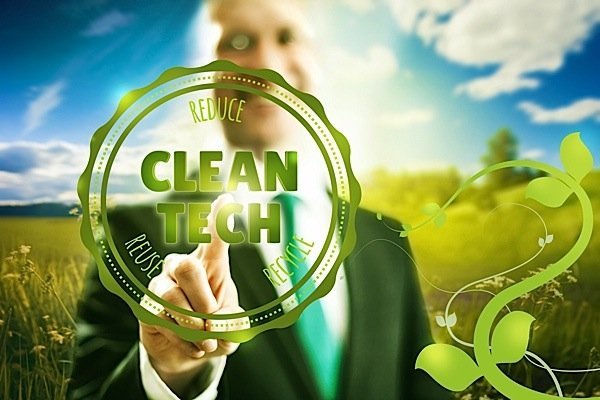
A new report from Cleantech Canada expresses optimism that Canadian cleantech businesses and entrepreneurs are poised for growth. Cleantech is a sector “whose time has come,” thanks to changes in government leadership, the promise of millions of dollars in investment, and the progess made at the Paris climate summit last December. The industry has come a long way, says Lisa Wichman of Cleantech Canada, from the days when corporate sustainability wasn’t even mentioned in Canada’s boardrooms. The year 2016 promises to be a “banner year” for innovation, and businesses are looking for shorter approval times and easier access to grants and incentives. It’s a “new day” in Canada, the report enthuses, and the country’s cleantech industry is on the verge of a “significant leap forward,” according to industry leaders.
The Cleantech Canada report comes out just a day after Prime Minister Trudeau attended the launch of the Smart Prosperity group in Vancouver, where he is meeting the provincial premiers to discuss the new carbon-reduced economy. The Prosperity Group, consisting of twenty-six leaders from business and environmental groups, will try to identify ways in which businesses can innovate new products and boost the economy with cleantech technologies.
With innovative technologies, world-class research and the right mix of funding, Canadian cleantech is well positioned not only to support the world’s shift away from traditional fuels and wasteful technologies, but lead it.
According to Cleantech Canada, the Trudeau government has pledged $200 million a year in new spending on cleantech. That, along with regulatory changes, is “virtually guaranteed” to add new revenue streams and let the cleantech industry get past some of its fiscal woes. Maintaining the status quo and leaving Canada’s economy vulnerable to the vagaries of the commodities market, the report argues, is not an option, as the current oil crisis makes clear.
One of these regulatory changes would involve paying for carbon. When governments and businesses must pay for every ton of carbon they use, “automatically, every cleantech business has a market advantage,” according to climate change lawyer Gray Taylor. Carbon capture and storage (CCS) is one area, said Taylor, where cleantech can shine. There is “massive appetite” for technology than can reduce the cost of CCS. The question is no longer whether wind or solar or other renewable technologies can replace fossil fuels, but how long it will take.
Does this mean that businesses are embracing clean technologies and products without regard for the bottom line? Far from it. Selling clean technology is less about pitching its virtues as an environmental saviour and entirely about demonstrating how it can save a company money.
With innovative technologies, world-class research and the right mix of funding, the report says, Canadian clean tech is well positioned not only to support the world’s shift away from traditional fuels and wasteful technologies, but lead it.































